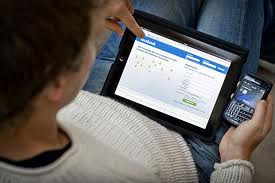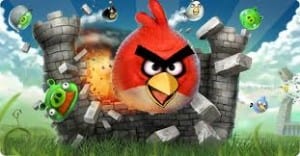 Every manager has his or her own style for supervising their employees. Some prefer a hands-off, honor system that assumes their employees are doing the best work possible. The thinking goes happy employees feel trusted, work hard and don’t need to be micromanaged. Maybe they take an extra 10 minutes for lunch. So long as they’re getting the job done, isn’t that what really matters? Others advocate for a more vigilant approach by using GPS and other technologies to limit ‘goof time,’ as one McKinsey & Company consultant put it earlier this year at Field Service 2011. Who’s to say which approach works best. When it comes to managing technicians in the field, a one-size-fits-all approach doesn’t work.
Every manager has his or her own style for supervising their employees. Some prefer a hands-off, honor system that assumes their employees are doing the best work possible. The thinking goes happy employees feel trusted, work hard and don’t need to be micromanaged. Maybe they take an extra 10 minutes for lunch. So long as they’re getting the job done, isn’t that what really matters? Others advocate for a more vigilant approach by using GPS and other technologies to limit ‘goof time,’ as one McKinsey & Company consultant put it earlier this year at Field Service 2011. Who’s to say which approach works best. When it comes to managing technicians in the field, a one-size-fits-all approach doesn’t work.
Coca-Cola Bottling Co, however, has taken a “Third Way” when it comes to managing its mobile workforce. According to ZDNet’s Eric Lai, Coca-Cola gave their salespeople iPads and actually encouraged them to download Angry Birds and other games. Their rationale? Employees take better care of the devices if they’re having fun with them. Plus, Angry Birds acted as gamified training, teaching employees how to use the iPad’s touchscreen. According to a Coca-Cola exec, the strategy actually worked.
This has implications for the rugged devices, too. Lai mentions an analyst who shares a story about an Australian company with more than 700 employees in the field. According to the analyst, the company first gave its employees rugged devices, but the devices kept coming back broken. So they switched to iPads, and virtually none were broken during the first year. The iPads may have been more delicate than their rugged predecessors, but employees enjoyed using them and treated them more delicately.
 That’s not to say managers should encourage their mobile employees to spend endless hours playing Angry Birds or getting caught up on Facebook. It’s well-known that employee productivity plummets during March Madness, costing companies upwards $1.8 billion in lost productivity during the first week of the tournament alone. (Others claim those numbers are vastly exaggerated, and that the energy and emotion employees get from filling out a bracket and following the games can actually translate to increased energy at work.) Facebook and other social media sites are another usual suspect in wasted employee productivity. Computerworld cites a study by Nucleus Research that found companies that allow Facebook at work lose, on average, 1.5 percent in employee productivity.
That’s not to say managers should encourage their mobile employees to spend endless hours playing Angry Birds or getting caught up on Facebook. It’s well-known that employee productivity plummets during March Madness, costing companies upwards $1.8 billion in lost productivity during the first week of the tournament alone. (Others claim those numbers are vastly exaggerated, and that the energy and emotion employees get from filling out a bracket and following the games can actually translate to increased energy at work.) Facebook and other social media sites are another usual suspect in wasted employee productivity. Computerworld cites a study by Nucleus Research that found companies that allow Facebook at work lose, on average, 1.5 percent in employee productivity.
But most of the existing research focuses on office-bound employees tethered to their PCs. It’s the early days of mobile workforces — or at least mobile workforce productivity studies — and the jury’s still out on whether granting mobile employees a few diversions pays off in happier, more productive employees who treat their devices more tenderly.
So far, though, it’s working for Coca-Cola.

Share this: